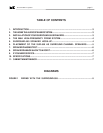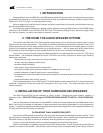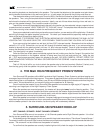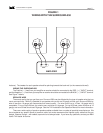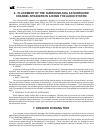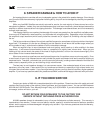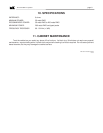
Surround-550THX speaker
page 6
6. PLACEMENT OF THE SURROUND-550s AS SURROUND
CHANNEL SPEAKERS IN A HOME THX AUDIO SYSTEM
Your Surround-550 speakers are specifically designed to be used as surround channel speakers in a
multichannel audio system (either Home THX or non-THX. The instructions given here apply to surround channel
applications, including Dolby Digital, MLP, DTS, and multichannel music modes such as ambience recovery or
acoustical environment synthesis.
Your surround speakers can be installed in a wide variety of locations, but in some rooms their installation can
be quite a challenge to install. If you have questions, please don't hesitate to contact your M&K dealer or the M&K
factory. We will be happy to discuss your system with you.
In general, the Surround-550s should be located high on the walls and to the sides of the listening position.
Typically, they should be placed on the left and right room side walls at the center of the main listening area.
a. POSITION RELATIVE TO SEATING
The Surround-550 speakers should be located adjacent to the seating position. If there is one row of seats, the
Surround-550s should be located directly to the left and to the right of this row of seats. If there are multiple rows of
seats, then the Surround-550s should be located directly to the left and right of the geometric center of the listening
area.
If the Surround-550s cannot be located exactly adjacent to the seating area, it is better for them to be located
slightly towards the back of the room, behind the listening positions, rather than in the front of the room, between the
listening position and the screen.
It is also acceptable to locate the speakers on the back wall of the room. In this case, they should be located
symmetrically relative to the back corners. Another good location is in the corner itself. In addition to the flush mount
brackets provided with your speakers, M&K makes a variety of very high quality speaker mounting brackets that can
be used to mount the speakers to the side or back walls, as well as in the corner itself.
b. HEIGHT
In general, the Surround-550 should be located near the ceiling. Placement above the listeners' heads is very
important, with the cabinet's bottom at least two feet above a seated listener's head. In fact, if at all possible, the
speakers should be located above a standing listener's head, so that people walking around the room will be unable
to localize them.
c. WALL LOCATION
Your surround speakers can be mounted on either the side walls or on the back wall, or even directly in a corner.
They can be flush on the wall, on shelves, on brackets, etc. If you find the sound to be too directional, you can angle
the speakers towards the back wall or towards the side wall surface closest to the speaker. If you are angling the
speaker for this purpose, it should be angled in the same direction that the tweeter is angled (towards the back of the
room if the speaker is mounted on the side wall, and towards the nearest corner if the speaker is mounted on the back
wall).
d. USING MULTIPLE PAIRS OF SURROUNDS
Some listeners prefer multiple pairs of surround speakers. Multiple pairs of surrounds can make a dramatic
improvement and provide a deeper and broader surround effect. When using multiple pairs of surround speakers, a
symmetrical installation pattern works best. For example, one pair could be mounted on the back wall of the room,
mounted equidistant from the back corners, wit the other pair mounted on the side walls of the room, equidistant from
the same back corners.
7. SPEAKER PHASING TEST
In any system using a subwoofer separate from Satellite speakers, especially in multichannel surround sound
applications, a phasing test must be performed to insure proper phase in the system, thereby achieving optimum sound
in the critical bass frequencies.
For a Home THX Audio system, follow the system instructions provided with the THX controller, as you will need
to have correct phase among all the speakers in the system. These instructions will take you through the front
channels, surround channels, and subwoofer, by comparing phase between individual channels until you have
established that all units have identical phase.




